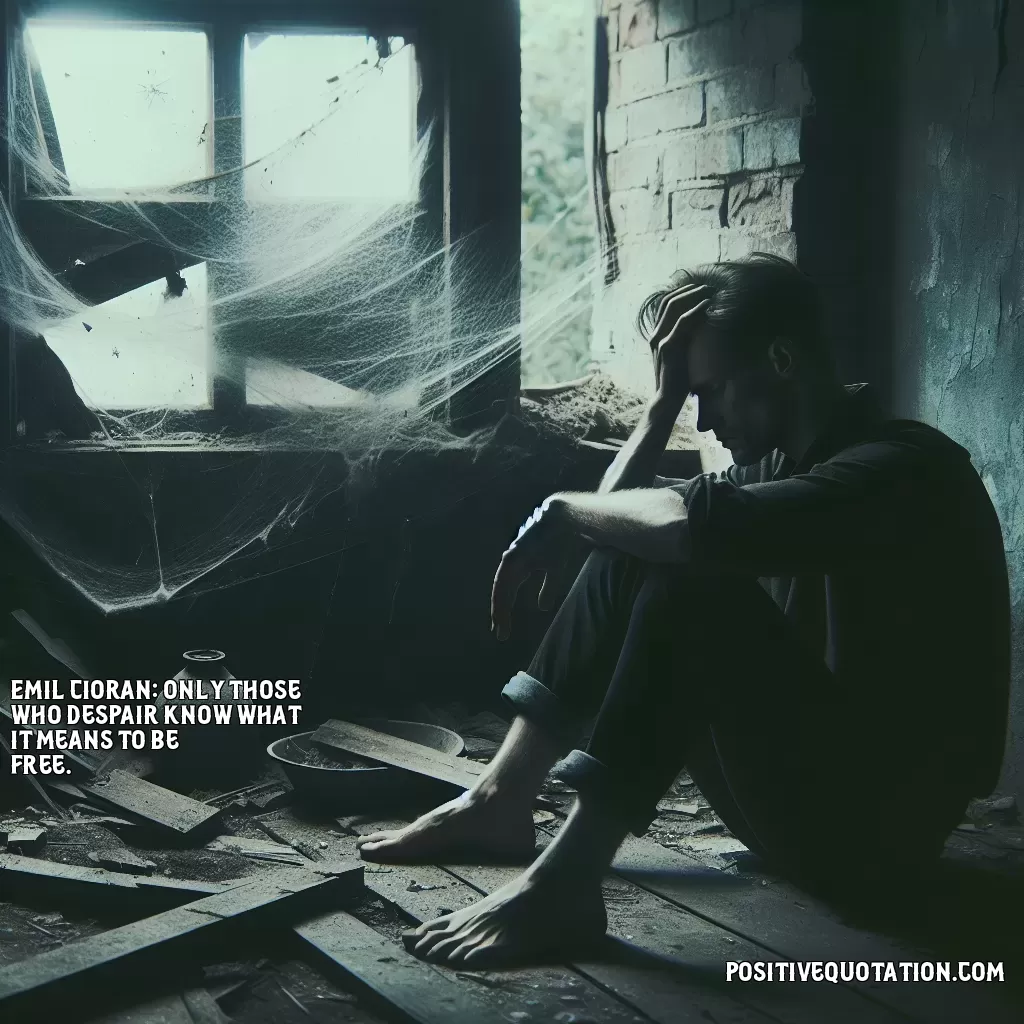
Emil Cioran: Only those who despair know what it means to be free.
Author: Emil Cioran
👁️ 7 views
Emil Cioran's quote, "Only those who despair know what it means to be free," suggests a profound and paradoxical relationship between despair and freedom. At first glance, despair is typically associated with hopelessness, despondency, and a lack of freedom, as it often feels like an emotional trap. However, Cioran is known for exploring existential themes, and this quote invites a deeper reflection on the nature of freedom and human experience. Despair strips away illusions and superficial distractions, compelling individuals to confront the stark realities of existence. When one experiences despair, they may undergo a kind of existential awakening, where societal norms, expectations, and material attachments lose their grip. It is in this raw state of being that one might access a form of freedom unencumbered by the usual concerns and constructions of daily life. Freedom, in this context, is not about physical liberation or an abundance of choices. Instead, it signifies an inner liberation from the arbitrary values and pressures imposed by society. When one has nothing left to lose, traditional fears, such as failure or rejection, become irrelevant. This liberation can lead to a profound sense of autonomy and authenticity, allowing individuals to live in accordance with their true selves, unconcerned with conforming to external standards. Therefore, Cioran's quote can be understood as an exploration of how facing one's deepest despair can dissolve the chains of societal and psychological constraints, offering a unique and profound insight into what it means to be truly free.
Quote By: Emil Cioran
Emil Cioran, a Romanian philosopher and essayist, was born on April 8, 1911, in Rășinari, a small village in Transylvania. Known for his profound and often pessimistic insights into the human condition, Cioran's work traverses themes of despair, existentialism, and the absurd. His early education in Sibiu and later in Bucharest laid the foundation for his literary and philosophical pursuits. In 1937, Cioran published his first book, "On the Heights of Despair," which quickly established him as a notable voice in Romanian literature.
After moving to Paris in 1937, Cioran embraced the French language and began writing in it, ultimately becoming a significant figure in French literature. His unique style marries lyrical prose with philosophical reflection, and his works often delve into the bleakness of human existence. In the tumultuous backdrop of the 20th century, Cioran’s writings resonate with the disillusionment and uncertainty of the era. He became associated with the existentialist movement, although he often disavowed its more optimistic philosophies.
Throughout his career, Emil Cioran produced several notable works, including "The Trouble with Being Born," "A Short History of Decay," and "The temptation to exist." His writings are characterized by a deep, almost poetic exploration of themes such as suffering, mortality, and the futility of existence. Cioran’s philosophy, often steeped in nihilism, invites readers to confront the absurdity of life and the inevitability of death, prompting introspection on the nature of existence itself.
Despite his bleak outlook, Emil Cioran's influence extends beyond the confines of despair; he has inspired countless readers and thinkers with his incisive observations and stylistic brilliance. He lived in Paris until his death on June 20, 1995, leaving behind a legacy of philosophical insight that continues to captivate audiences around the world. Cioran remains a significant figure in literary and philosophical discussions, celebrated for his ability to articulate the complexities of the human experience.